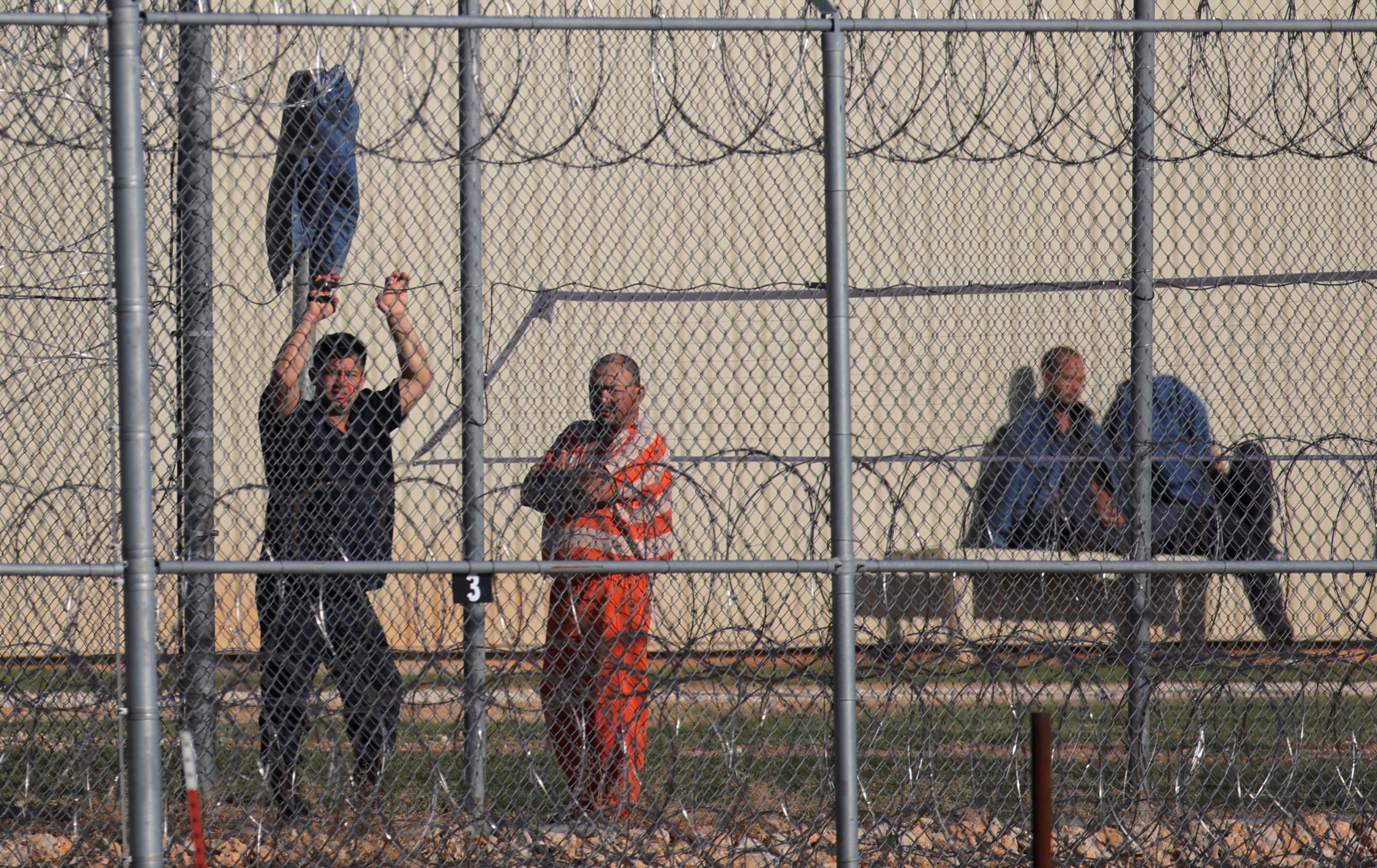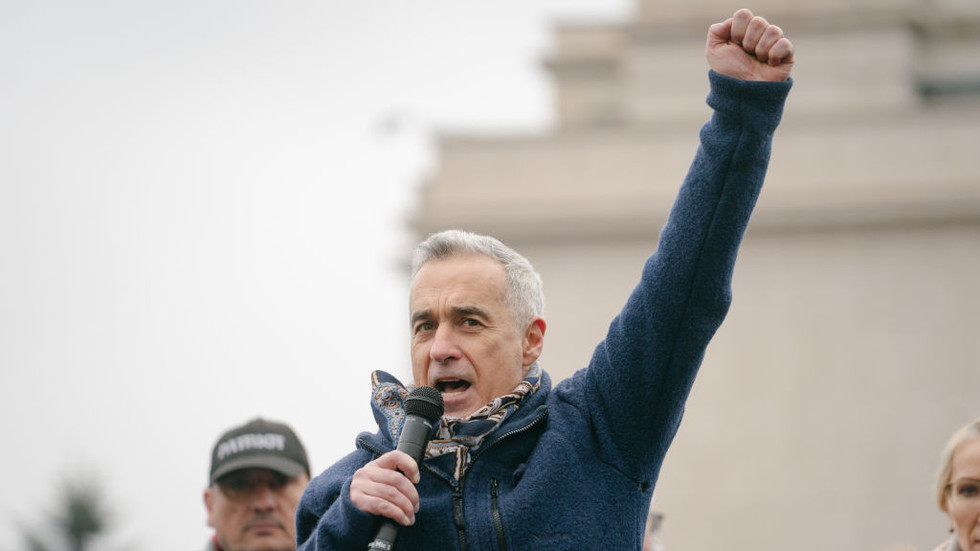Donald Trump’s administration moved a Venezuelan immigrant living in Philadelphia to a Texas detention facility for possible removal from the United States despite a court order blocking his removal from Pennsylvania and the country.
On April 15, Trump-appointed District Judge Stephanie Haines blocked the government from moving a man named in court documents as A.S.R. from her western Pennsylvania judicial district.
But roughly 30 minutes after her order, a plane carrying the man took off for Texas, according to filings from the American Civil Liberties Union, which represents him.
A.S.R. is detained at Bluebonnet Detention Center in Anson, Texas, a state holding more than 12,000 people facing removal from the country.
Haines did not accuse the administration of violating her order, but A.S.R.’s removal marks yet another instance of administration officials acting in apparent defiance of the federal judiciary to implement the president’s anti-immigrant agenda.
The government has tried to deport A.S.R. under the president’s use of the Alien Enemies Act, which the administration has used as legal justification to summarily deport alleged members of the Tren de Aragua gang from the United States. He is believed to be among immigrants at a Texas facility where the government was allegedly preparing flights to deport “alien enemies.”
On April 19, the Supreme Court blocked those removals.

In his proclamation invoking the Alien Enemies Act for only the fourth time in U.S. history, Trump stated that “all Venezuelan citizens 14 years of age or older who are members of [Tren de Aragua], are within the United States, and are not actually naturalized or lawful permanent residents of the United States are liable to be apprehended, restrained, secured, and removed as Alien Enemies.”
The administration has admitted in court filings that “many” of the people sent to a notorious prison in El Salvador under the Alien Enemies Act did not have criminal records, and attorneys and family members say their clients and relatives — some of whom were in the country with legal permission and have upcoming court hearings on their asylum claims — have nothing to do with Tren de Aragua.
On April 7, a divided Supreme Court agreed to lift a judge’s order that temporarily blocked the president’s use of the wartime law to swiftly deport people from the country, but justices said immigrants marked for removal are still entitled the ability to challenge their removal in front of a judge in the jurisdiction where they are jailed.
Following that ruling, lawsuits challenging immigrants’ deportations under the Alien Enemies Act have been filed across the country. Federal judges in Manhattan, Colorado, Pennsylvania and Texas have all issued similar rulings that temporarily block immigrants’ removal from the country or their district while their legal challenges play out.
But attorneys argue the administration has tried to get around those court orders by moving immigrants to the detention center in a northern Texas judicial district they believe would be more favorable to Trump’s use of the Alien Enemies Act.

On April 17, Texas District Judge Wesley Hendrix declined to block Alien Enemies Act removals from his district. The following day, at least 28 immigrants were loaded onto buses headed to an airport within that district, according to the ACLU.
Those buses reportedly turned around after the Supreme Court blocked the government from removing targeted immigrants in Texas “until further order of this court.”
“What the government was doing was finding Venezuelan men, rounding them up and shipping them to the Northern District of Texas,” ACLU lawyer Tim Macdonald said during a recent federal court hearing in Colorado.
A.S.R. entered the United States in November 2023 with his wife, child and two stepchildren, according to his attorney. He has been working in construction in Philadelphia since December.
He was arrested on February 26. Immigration and Customs Enforcement officers reportedly told him that a neighbor labeled him a Tren de Aragua member, A.S.R.’s attorney wrote in court filings.
Government lawyers have argued that A.S.R. was already in the process of being moved from Pennsylvania and Texas before Judge Haines’s ruling and before A.S.R.’s attorneys filed a petition with the court.
“Our purpose here in this discussion is not to say that the government purposely avoided your court’s jurisdiction, but just to get to the bottom of it,” ACLU attorney Lee Gelernt told the court this month.

 4 hours ago
4
4 hours ago
4









